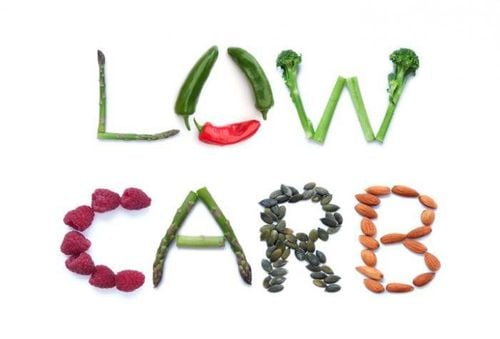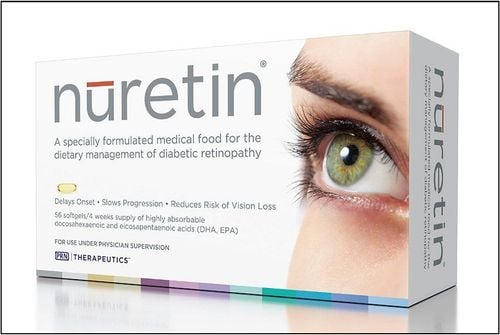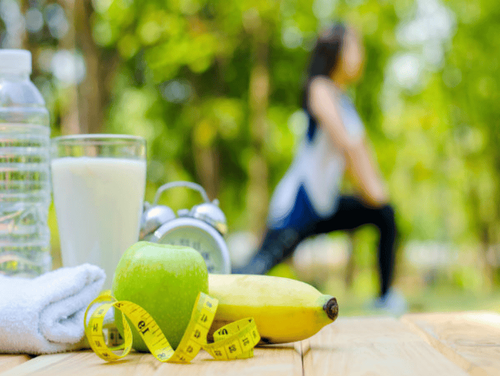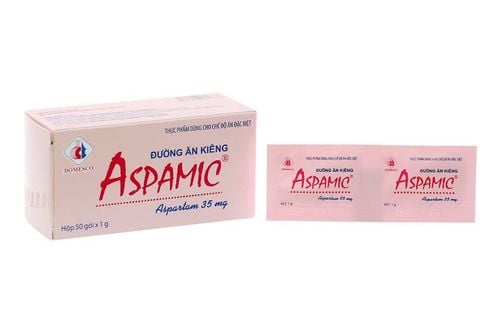This is an automatically translated article.
Bananas are one of the attractive fruits, they not only bring a rich source of nutrition but also have a lot of medicinal uses. It is estimated that the global export demand for bananas is about 18 million tons (2015), half of which has gone to the United States and the European market.
1. Banana is a fruit rich in nutritional value
Bananas are one of the most important food crops on the planet. It is a plant in the Musa family that is native to Southeast Asia and is widely grown in warm areas. Bananas are a healthy source of fiber, rich in potassium, vitamin B6, vitamin C, antioxidants and phytonutrients.
Bananas come in different types and sizes. The color usually ranges from blue to yellow. However, there are now several varieties of red bananas.
Banana is a healthy food, as it contains a number of essential nutrients and provides benefits for digestion, heart health and weight loss. Besides, bananas are also a very convenient snack.
A 2017 meta-analysis study published by the Prilozi Department of Medical Sciences suggested that unripe green bananas offer a number of health benefits. They can help control gastrointestinal problems like diarrhea and ulcers, and lower cholesterol and blood pressure. In addition, some studies have also suggested that the herbal substances in green bananas may provide treatment for HIV patients.
Trắc nghiệm dành riêng cho người mắc đái tháo đường: Chế độ ăn của bạn đã hợp lý chưa?
Người bị bệnh đái tháo đường cần phải quan tâm nhiều hơn đến cách tính toán khẩu phần ăn sao cho phù hợp với nhu cầu và tình trạng sức khỏe. Nếu chưa rõ, bạn có thể tìm hiểu kỹ hơn thông qua bài trắc nghiệm ngắn sau đây.2. Nutritional value of bananas
Nutrition facts in medium sized banana (100 grams): 89 calories, 75% water, 1.1 grams protein, 22.8 grams carbohydrates, 12.2 grams sugar, 2.6 grams fiber, 0.3 grams fat.
2.1. Carbohydrates
Bananas are a rich source of carbohydrates. It mainly occurs as starch in unripe bananas and sugar in ripe bananas. During the ripening of bananas, the carbohydrate composition will change drastically.
Unripe bananas have starch as the main ingredient. Green bananas contain about 80% dry starch. During ripening, the starch is converted to sugar and ultimately less than 1% of the starch remains when the banana is fully ripe. The most common sugars found in ripe bananas are sucrose, fructose and glucose. In ripe bananas, the total sugar content can reach more than 16% of the fresh weight.
Bananas have a relatively low glycemic index (GI) between 42-58 and this depends on their ripeness. GI is a measure of how well carbohydrates in a food enter the bloodstream and raise blood sugar levels. The long bananas are high in starch and fiber and are rated low on the glycemic index.
2.2. Fiber
Nutrition of unripe bananas has a high percentage of resistant starch. This substance when put into the intestine will not be digested. In the large intestine, this starch is fermented by bacteria to form butyrate—a short-chain fatty acid—which has beneficial effects on gut health.
Bananas are also a good source of other types of fiber such as pectin. Some pectins in bananas are water soluble. As bananas ripen, the percentage of water-soluble pectin increases, which is why bananas become softer as they age.
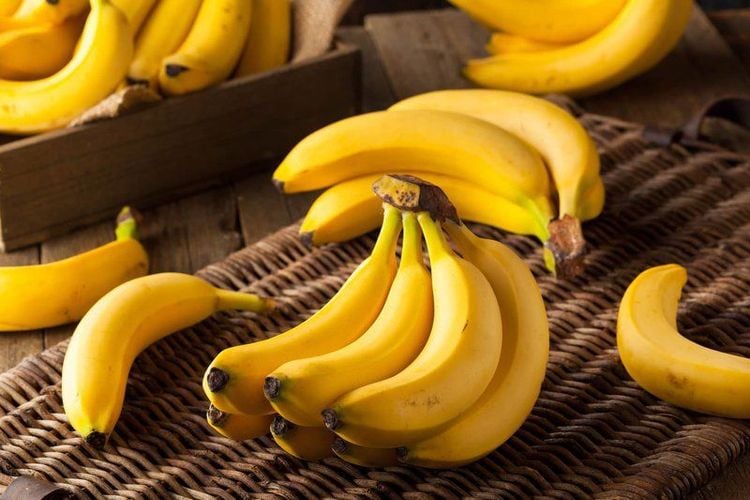
Chuối có rất nhiều chất xơ
2.3. Vitamins and minerals
Vitamins and minerals is a nutritional component of bananas that cannot be ignored, because it contains many special good components such as potassium, vitamin B6 and vitamin C.
Potassium: Banana is a good source of potassium. A diet high in potassium may help lower blood pressure in people with elevated blood pressure levels and is beneficial for heart health.
Vitamin B6: One medium banana can provide 33% of the daily requirement for vitamin B6 content.
Vitamin C: Like most fruits. Bananas are also a rich source of vitamin C.
2.4. Some other substances
Fruits and vegetables often contain a wide variety of bioactive plant compounds and bananas are no exception.
Dopamine: Although it is an important neurotransmitter in the brain, dopamine from bananas does not cross the blood-brain barrier to affect mood. Instead, it acts as an antioxidant.
Catechin: This is a flavonoid antioxidant found in bananas and they have been linked to many health benefits including a reduced risk of heart disease.
3. Some Nutritional Benefits of Bananas
3.1. Bananas contain nutrients that maintain stable blood sugar levels
Bananas are rich in pectin which is a type of fiber brought about by its spongy structure. Unripe bananas contain resistant starch that acts like soluble fiber and is eliminated through the digestive tract. The pectin and resistant starch in bananas can lower blood sugar levels after eating and reduce cravings by slowing stomach emptying.
Furthermore, bananas also rank low to medium on the glycemic index (GI) (this scale ranges from 0 to 100). The glycemic index value of unripe bananas is about 30, while ripe bananas rank around 60. The average value of all bananas is 51. This shows that bananas do not cause a large spike in amounts. blood sugar in healthy people. However, it cannot be applied to people with type 2 diabetes. These subjects should avoid eating a lot of ripe bananas and need to carefully monitor the blood sugar index.
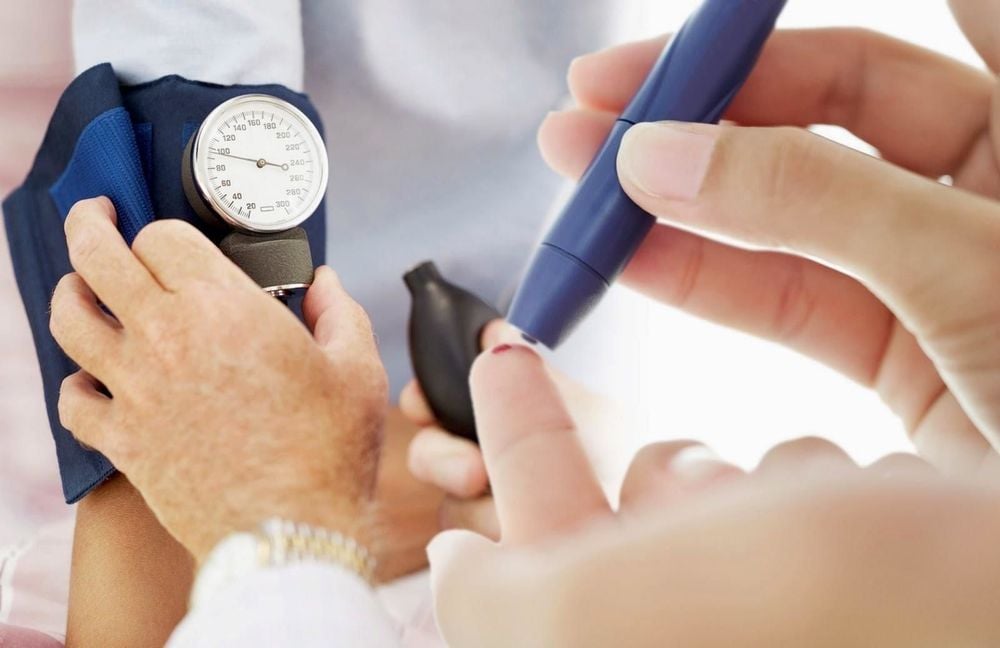
Bệnh nhân đái tháo đường không nên ăn chuối chín
3.2. Bananas help improve digestion
Fiber has been linked to many health benefits including improved digestion. One medium banana has about 3 grams of fiber. With this content, bananas become a pretty good source of fiber. Bananas contain two main types of fiber:
Pectin: The content of this substance will decrease as bananas ripen. Resistant starch: This substance is also found in unripe bananas. Resistant starch is eliminated through the digestive process and ends up in the large intestine, where it becomes food for beneficial bacteria in the gut. Additionally, some studies suggest that pectin may help protect against colon cancer.
3.3 Bananas can help with weight loss
Although there are no studies directly testing the effects of bananas on weight loss, but because bananas have a number of good attributes, it makes it a weight loss friendly food.
For those who are starting to lose weight, banana is a good choice because it contains few calories but is very nutritious. Moreover, unripe bananas contain resistant starch, so it will make you feel full for a long time and reduce appetite.
3.4. Bananas can support heart health
Potassium is a source of minerals essential for heart health, especially controlling high blood pressure. Despite its importance, very few people get enough potassium in their diets.
Bananas are an excellent source of potassium, each medium banana has about 9% of the recommended daily requirement. A diet rich in potassium can help lower blood pressure, and people who eat a lot of potassium have a lower risk of heart disease (27%).
Moreover, bananas also contain a fair amount of magnesium and it also has an effect on heart health.
3.5. Bananas contain strong oxidants
Fruits and berries are excellent sources of antioxidants in the diet and bananas are no exception. The antioxidants in bananas are mainly dopamine and catechins. These substances have been linked with many health benefits, such as a reduced risk of heart disease and degenerative diseases. However, there is a common misconception that the dopamine found in bananas acts as a good brain chemical. In fact, the dopamine in bananas does not cross the blood-brain barrier. It simply acts as an antioxidant instead of altering hormones or mood.
3.6. Bananas can help you feel fuller for longer
Resistant starch is an indigestible carbohydrate found in unripe bananas and other foods. It functions like soluble fiber.
As a rule of thumb, the greener the banana, the higher the amount of resistant starch. A ripe yellow banana has a lower amount of resistant starch and total fiber, but a higher amount of soluble matter.
Both pectin and resistant starch are effective in reducing cravings and increasing satiety.
3.7. Unripe bananas can improve insulin sensitivity
Insulin resistance is a major risk factor for many serious diseases including type 2 diabetes. Some studies have shown that 15-30 grams of resistant starch per day can improve blood sugar levels. insulin sensitivity up to 33-50% within 4 weeks.
Unripe bananas are a great source of resistant starch. Therefore, they may help improve insulin sensitivity. However, this issue still needs more research to be clarified.
3.8. Bananas can improve kidney health
Potassium is essential for blood pressure control and kidney function. Bananas are a good source of dietary potassium. A 13-year study in women determined that those who ate bananas 2-3 times per week had a lower level of kidney disease (33%). Similarly, other studies have shown similar results. People who ate bananas 4-6 times per week were 50% less likely to develop kidney disease than those who didn't.
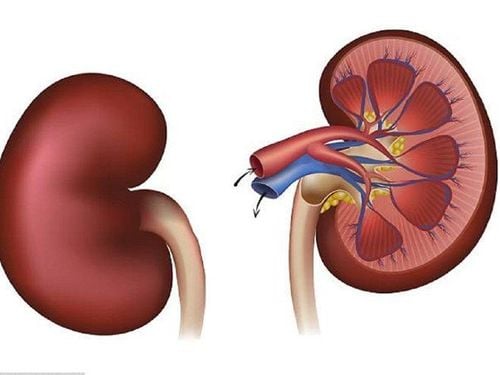
Kali trong chuối giúp cải thiện sức khỏe thận
3.9. Bananas may be beneficial for exercise
Bananas are often called the perfect food for athletes. This is largely because of its mineral and carbohydrate content, which is easy to digest. Eating bananas can help reduce exercise-related muscle cramps and soreness.
A 2012 study published in PLOS looked at refueling male athletes competing in long-distance cycling races with 1 banana and water (every 15 minutes) showing a timetable The performance and physiology of athletes are the same. But, bananas' serotonin and dopamine improve antioxidant capacity and help reduce inflammation in the body, improving overall performance.
Besides the nutritional benefits of bananas, it also has health risks if used improperly. Because bananas are a sugary fruit, overeating and not maintaining proper oral hygiene practices can lead to tooth decay. Or they don't have enough fat and protein to make them a post-workout snack. Or consuming too many bananas can lead to hyperkalemia, which is a characteristic risk factor for muscle weakness, temporary paralysis, and an unstable heart rate.
Vinmec International General Hospital has the function, examination, treatment, and prevention of many diseases. After performing the medical examination and treatment process at Vinmec, customers will also be consulted by doctors about the best nutrition regimen to prevent and limit disease complications after the treatment process. Customers can directly go to Vinmec Health system nationwide for examination or contact the hotline here for support.
References: healthline.com, livescience.com




